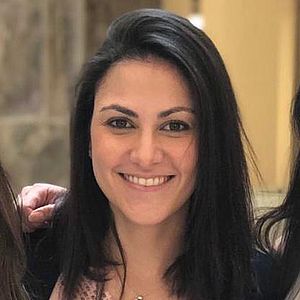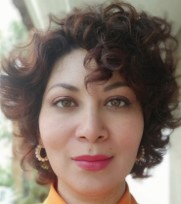Case Studies & Workshops
Table of contents
Parallel Workshops on 12 November 2021
Pro-Poor Growth Policies and Pro-Poor Entrepreneurship (SDGs 1 & 8)
HTW Berlin Alum, Francis Ilunga from Zambia currently holds the position of Senior Inspector of Banks at the Bank of Zambia. Francis, who also happens to be a farmer, brings forward a powerful case study he is directly involved with that details strategies and macroeconomic policies led by the Bank of Zambia to promote financial inclusion and entrepreneurship, reduce gender inequality, and promote economic diversification within the ranks of the most vulnerable populations in the country.
Guest Speaker: Francis Ilunga from Zambia is a Senior Inspector of Banks at the Bank of Zambia and a graduate of the MIDE program at HTW Berlin.
Francis oversees numerous commercial bank examinations and has held several roles within the Bank of Zambia as well as having extensive experience participating in meetings and workshops at the Federal Reserve Bank in the USA, The Bank of International Settlements in Basel, Bundesbank in Frankfurt and the South African Reserve Bank among others. He also possesses experience as a Data Liaison Officer at the IMF, and he currently represents the Bank of Zambia in the Long-Term Finance Project (LTF) at the African Development Bank.

Economic Dynamics, Technology, and Infrastructure (SDGs 8 & 9)
This pillar of the conference focuses an innovative case on the role technology plays in sustainable economic growth in the Developing World.
HTW Berlin Alumna Natalia Cristina Batista da Silva presents the case study on the implementation of a new approach to electrify rural households in Sub-Saharan Africa through Savings Groups. The case proves that using a platform that is familiar to the final beneficiary has the potential to foster community development and empower whole villages. Even though the fight against energy poverty has been successful over the years, the challenge remains largely relevant, therefore new approaches and technologies should be continually tested to improve the living conditions of so many unelectrified people in Sub-Saharan Africa.
Natalia Batista da Silva from Brazil is a Global Data Analyst for Customer Finance at the Engie Energy Access and a graduate of the MIDE program at HTW Berlin. Apart from conducting rigorous data analysis and data modeling, she also works closely on several projects to enhance customer repayment in her challenging industry. Natalia has extensive experience in credit analysis and assessment as she worked in major financial institutions, such as HSBC and the InterAmerican Development Bank USA for 4+ years, until she joined the solar industry.

Parallel Workshops on 13 November 2021
People, Communities and Public Utilities (SDGs 6, 7 & 11)
MBA-Sept Alumna Durdana Prado presents the case study on the implementation strategy of the 2030 Agenda for Sustainable Development Goals in the west-central state of Jalisco in Mexico. Durdana leads efforts the advancement of the 2030 agenda within the government and brings forward a groundbreaking case study of rain harvesting systems in 600 households in the state. The case proves not only to be a great benchmark for environmental sustainability but also has huge potential for alliances with the private sector to encourage the optimization of water management systems for industrial production.
Guest Speaker: Durdana Prado from Mexico is the Coordinator of the 2030 Agenda with the State Government of Jalisco, Mexico and a graduate of the SEPT program at Leipzig University.
Durdana is an International Cooperation professional, and a Social Innovation and Social Entrepreneurship enthusiast. A 2016 DAAD-EPOS scholar and international MBA-SEPT program Alumna, Durdana plays key roles both as a part of the DAAD Mexico Ambassadors Program and a Government Official at the Ministry of Planning and Citizen Participation leading efforts to implement the 2030 Agenda for Sustainable Development and the SDGs at large in the state of Jalisco in west-central Mexico with her case study of "Nido de Lluvia".

Rethinking Economic Development: Circular Economy (SDG 12)
HTW Berlin Masters students in International and Development Economics with the help of Prof. Dr. Zikos, have put together a wonderful case on Circular Economy. These second-year students workshop their own ideas that challenge not only linear economic models but also challenge established topics on circular economies. The case study involves consumers, investors and regulators as main stakeholders of circular economy in the world and asks the question: Who is responsible? among other relevant questions around the principle of circularity which becomes more and more relevant in today’s business environment as well as policy making.
Guest Speakers: MIDE Programme Second-Year Students
